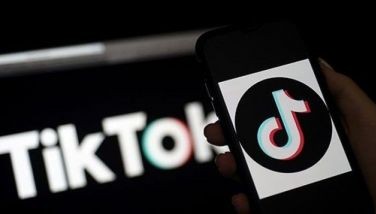Getting your news fix the Google way
Roger Fiddler couldn’t have said it any better: “Change is not something most people look forward to or are particularly good at predicting.”
Who could have anticipated, for example, that drinking your morning coffee with your daily news fix would be rendered quite obsolete by the coming of new media technologies that would alter our way of getting the news and the rituals that go with it.
Sure, you can still drink your coffee with the morning paper, but all throughout the day, the news simply doesn’t stop coming from every corner of the world and the coffee couldn’t last all day long if you are to follow what the world is coming down to 24/7.
Who needs all that news and all that information, anyway? The news consumer who couldn’t wait for tomorrow to know what is happening today, this very minute.
Breaking News has been around for sometime. News websites have been offering a blow-by-blow account of news as they happen. But is it possible to get news from the major publishers simultaneously on one website? Definitely, but that too has been old technology. Content aggregators have made a business model out of offering news to paid subscribers. All the news you can get per country or geographic location, per industry, per interest. Then came RSS feed, which dispenses your kind of news from all news sources you want in your computer or your mobile phone for free.
That was then. In Fiddler’s words: “Yesterday’s future, today’s past.”
The Web hasn’t stopped evolving and thus came Google News or as its catchphrase goes: “Aggregated headlines and a search engine of many of the world’s news sources.” But give it to the world’s leading search engine to refine the idea better. Last Thursday, it launched Google News Philippines, a portal that it says would “provide the Philippines’ 24 million Internet users the latest local news from more than 4,500 English-language sources, including a wide range of Philippine news outlets.”
Google says the Philippines is the first Southeast Asian country to have its own local edition (available at http://news.google.com.ph), the latest addition to its growing base of 56 regional editions that are now available in 20 languages.
No human editor
Hearing is believing. In a live teleconference from India, Google News product manager Rahul Roy-Chowdhury explained to journalists that news articles that appear on Google News are chosen from among the world’s leading publishers, ranked according to importance and updated every 10 minutes or so without human intervention.
“We believe in fair and unbiased ranking,” Roy-Chowdhury says, explaining the absence of a human editor to do all the news rankings.
Google News’ completely automated search is made possible by that near-perfect algorithm that also powers its search technology that made it a billion-dollar company, the darling of Wall Street. “If a publisher breaks in a story which is original, our technology can get that and aggregate if there is a local interest in it and if there are other editions reporting on the story in different locations. That is how the stories are ranked.”
In Roy-Chowdhury’s words, the two qualities that should make a news item on top of Google News are “recent and relevant.” The Google “crawler,” at work once it has the website, is able to find the algorithm and index the article properly.
And how do they include websites in their list? “We find news sources on the Web. Sometimes we get e-mails from readers asking us to include a news source, usually smaller news organizations and we review the source for inclusion, he says.
Diversity and breadth
A cursory look at the local Google News listings shows that aside from popular local news sites philstar.com, inquirer.net, gmanews.tv, ABS-CBN News, Manila Standard Today, BusinessWorld Online, Sun Star, Cebu Daily News, Manila Times, Tempo, Minda News and Malaya, there are also news from the wires — Reuters, AP, AFP and Xinhua; from news organizations such as Pinoy Press and the Philippine Information Agency; and from foreign publications — International Herald Tribune and even Al Jazeera TV.
“We help organize the world’s news and information by making it accessible and useful to everyone. Our goal is to get the news in every language, every country, every newspaper. With Google News, we are getting close to that,” says Roy-Chowdhury.
Surprisingly for this dream of diversity and breadth, Google doesn’t want ownership of the content itself. It is not affiliated with any publisher and the listing itself is not meant to be syndicated. “By going to our site, we help readers get the content and go directly to the publisher’s website (to read the news). We get people out (of Google) as quickly as possible. We try not to keep people in our portal,” says Roy-Chowdhury.
This itself is a radical departure from the drive of most websites today for “stickiness” or keeping readers within the site longer for higher and longer page views. Roy-Chowdhury explains that Google News itself don’t display advertisements and don’t derive direct revenue from the service which is completely free. However, by directing the page views to the publisher’s site, it is now up to the individual publishers to monetize the clicks and if the publisher supports Google Adsense on their website, then maybe Google can earn from it indirectly.
“We don’t work with publishers and we will never display an advertisement in Google News,” he stresses.
RP niche
The Philippines is a very important market in a very important region, says the gentleman from Bangalore we were talking to live over Skype for the launch of Google News Philippines, 10:30 a.m. in his time, 1 p.m. in ours.
As simple and as geeky as it is, with only five tech reporters staring at individual computer screens in a small conference room with red walls, Google has big goals in the country.
“With 24 million Internet users by the end of 2008, we want to make sure that we have an important presence there to decide how we can serve better. People look to Google for comprehensive news and we should satisfy that need,” Roy-Chowdhury says.
Since the Philippines has 87 dialects and Google News is merely aggregating local news in the English language, is there hope that one day news written in the national language and perhaps one or two major dialects could be listed in the portal?
“We expect to be expanding over time. We will see how we can improve local coverage. Right now we are very excited and we are looking forward to people using the product. It’s really the users who will decide whether our product is useful or not,” he concludes.
- Latest

























